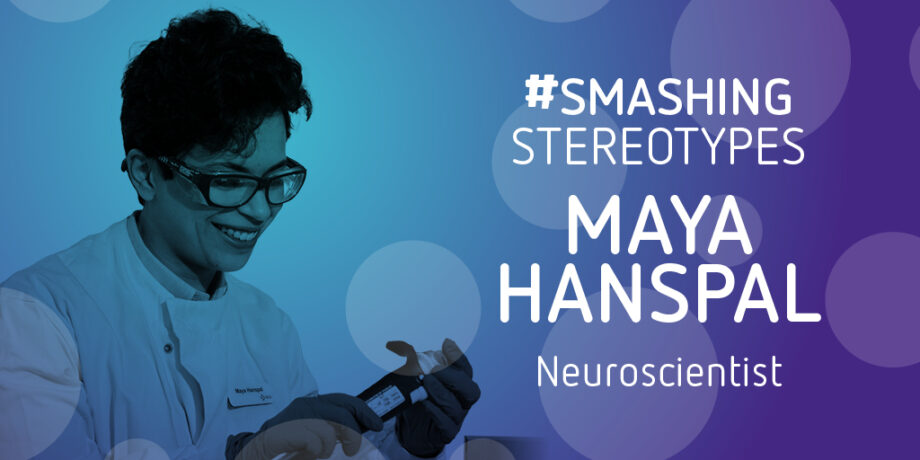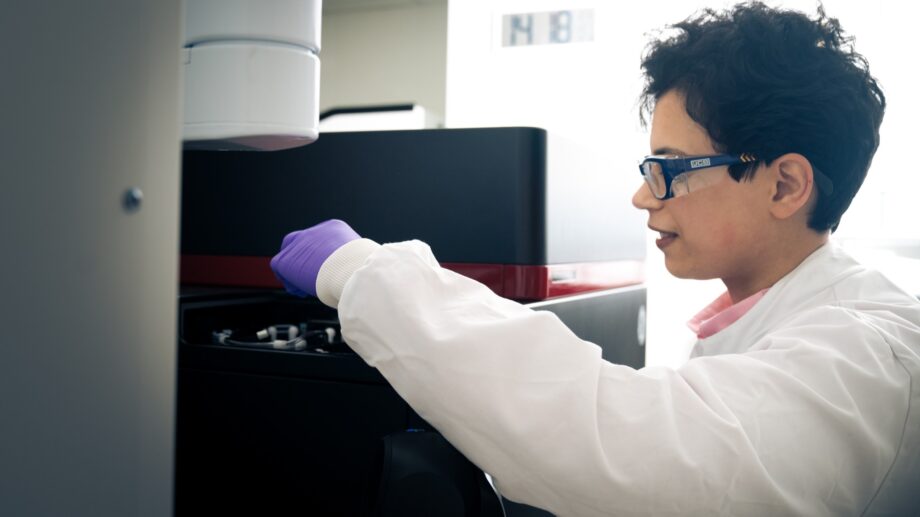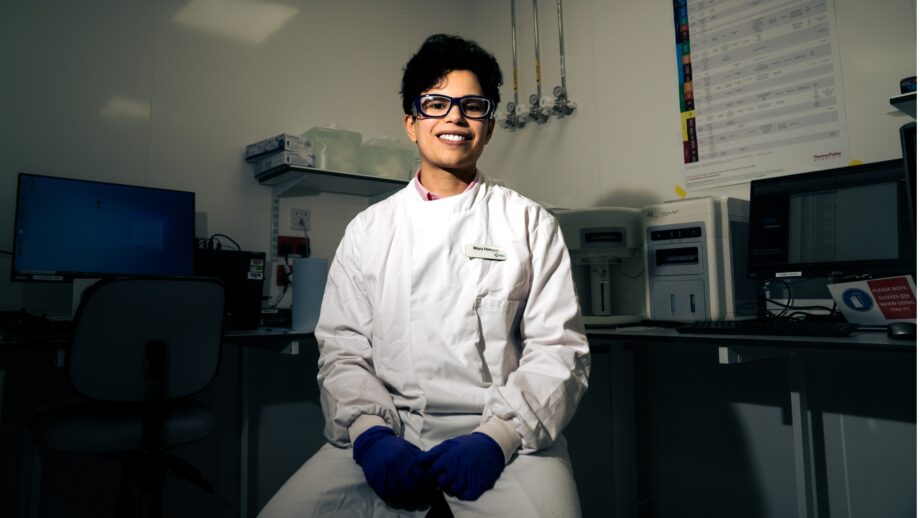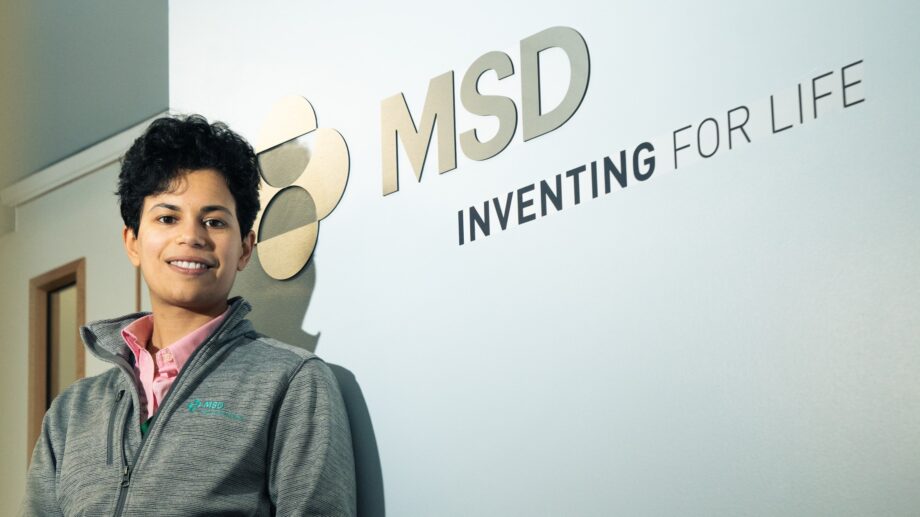MSD has provided partial funding towards the Smashing Stereotypes 2023 campaign.

Maya Hanspal
Neuroscientist, MSD
A no-brainer, mending minds from disease
After a degree in medical neuroscience from the University of Sussex and a PhD in Chemistry at Cambridge, Maya joined global pharmaceutical company, MSD, as a cell biologist.
Maya is based in the company’s London Bioscience Innovation centre in Kings Cross, investigating neurodegenerative diseases of ageing.
I have been fascinated by the brain ever since I read a copy of Horrible Science: Bulging Brains by Nick Arnold at school.
Initially, I wanted to become a neurologist, but that all changed during my gap year after university. I worked in a multiple sclerosis clinical trials team in a hospital where I got to see a part of the drug discovery process first-hand.
The clinicians working there explained that neurology is a very challenging area of medicine because we still don’t have effective medicines for a lot of conditions. This got me thinking – if I became a neuroscientist, I could have the chance to improve so many people’s lives and have a huge impact on people’s health.

I now work in the very first stage of the long and often complicated drug development process. I work on finding compounds that could ultimately be developed into a drug for use in the clinic. I help identify ways we can use drug targets to tackle diseases of ageing, and design experiments to understand how this may affect an individual’s underlying biology and if the target could help treat the disease.
Neurodegenerative conditions such as Alzheimer’s Disease are not an inevitable part of ageing, but are much more likely to happen as we get older. I’m trying to understand what processes go wrong in the nervous system over time, and how we can preserve or restore function in order to age in a healthy way. It is not an easy area of research but – especially as people are living longer globally – it is incredibly important.
It’s quite hard to describe my typical day at work; I could be running and analysing experiments, looking after my cells in tissue culture, writing up lab reports, working on publications, meeting with colleagues or even attending conferences. I love having so much variety because I would really struggle to sit still at a desk all day!
The most exciting part of my job is trying out an idea and seeing if it has worked. We spend a long time trying to understand the biology driving the diseases we are studying, and it is a great feeling when an experiment confirms a prediction. Having said that, sometimes it can be just as interesting when things don’t work out as planned – because it means we are discovering something new!

People often think that scientists must be incredibly analytical and mathematically minded. These skills are important, but I think creativity and thinking outside of the box are just as valuable. Science is all about problem-solving after all!
I was always good with words and art at school, and of course, I loved science, but I’m not naturally gifted at maths. I thought I couldn’t be a scientist when I was younger because of this, but it has never been a barrier for me, as long as I continue to harness my curiosity.

I didn’t have many role models working in science who looked like me when I was growing up, and I certainly had little in common with most of the scientists I idolised in my books (queue a picture of a white man in a lab coat). One of the best things I have discovered since becoming a scientist is that all kinds of people can contribute to science, and we all have unique life stories and backgrounds.
Increasing the visibility of people who don’t look like stereotypical scientists is really important to make sure that more people realise this can be a career option for them.
My PhD supervisor continues to be a big source of inspiration for me. Not only is she a formidably talented researcher, but she also prioritises mentorship and invests a lot of time and care into training students to become great scientists. I am forever thankful for her guidance and encouragement. She is a brilliant mentor and has inspired me to become one for future budding neuroscientists.